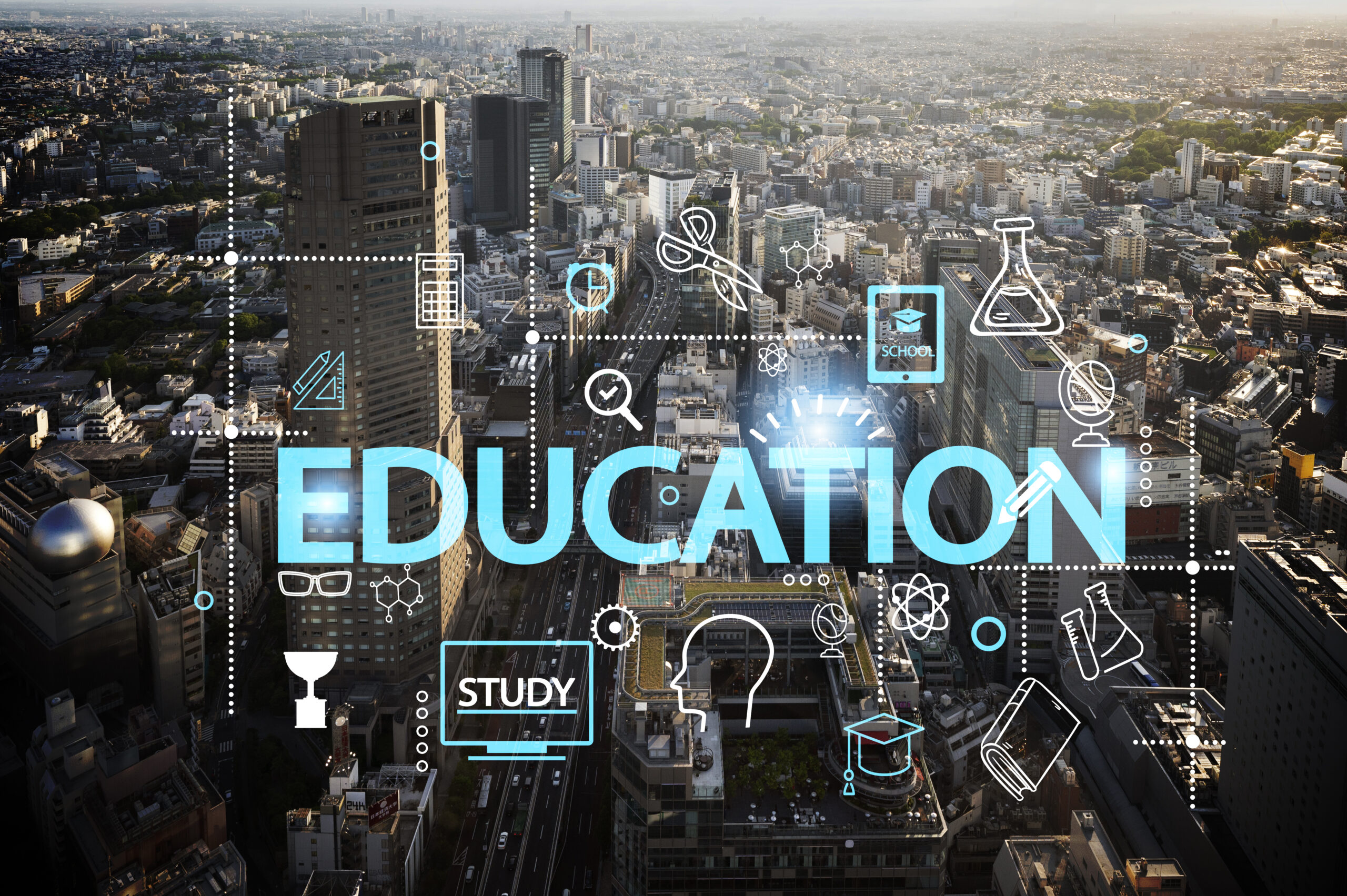Unlocking Knowledge: Navigating the Educational Landscap

Introduction
Education is the process of acquiring knowledge, skills, values, and attitudes that play a fundamental role in shaping individuals and societies. It encompasses formal, non-formal, and informal learning experiences aimed at transmitting essential competencies for personal development and social integration.
In this article, we will delve into the rich history of education, its diverse types, and significant aspects. We will highlight its profound influence on culture and the economy, emphasizing its pivotal role in driving societal progress and individual growth.
Education is deeply intertwined with society and culture, serving as a catalyst for social cohesion, economic advancement, and the formation of collective identity. Its impact resonates across generations, shaping the fabric of communities and influencing the trajectory of nations.
Understanding the History of Education
The history of education is a fascinating journey that showcases the evolution of knowledge dissemination and learning practices. From ancient civilizations to modern educational systems, education has played a vital role in shaping societies and individuals. In this section, we will explore the educational practices of ancient civilizations and trace the development of formal education through time.
Education in Ancient Civilizations
Ancient civilizations such as Mesopotamia, Egypt, and Greece laid the foundation for education as we know it today. Each civilization had its unique approaches to imparting knowledge and skills:
Mesopotamia
In Mesopotamia, education was primarily reserved for the elite class. They believed in the importance of written records and had scribes who were trained to read and write cuneiform script. Schools called “tablet houses” were established to teach writing, mathematics, and literature.
Egypt
Education in ancient Egypt was centered around preparing individuals for their roles in society. The primary focus was on practical skills such as agriculture, craftsmanship, and religious rituals. The scribal schools were responsible for training scribes who played a crucial role in administrative tasks.
Greece
Ancient Greece is often regarded as the birthplace of Western education. Education was highly valued in Greek society, with an emphasis on physical fitness, intellectual pursuits, and moral development. Philosophers like Socrates, Plato, and Aristotle emphasized critical thinking and questioning as essential aspects of education.
These ancient civilizations made significant contributions to knowledge dissemination through their educational practices. The establishment of schools, development of writing systems, and promotion of critical thinking laid the groundwork for future educational advancements.
Evolution of Modern Educational Systems
The evolution of modern educational systems can be traced back to medieval schools and the establishment of universities during the Renaissance period:
Medieval Schools
During the Middle Ages, education was primarily provided by religious institutions. Monasteries and cathedral schools were the centers of learning, focusing on religious teachings and Latin language skills. Education was accessible to a limited number of individuals, often those who were preparing for religious vocations.
Renaissance Period
The Renaissance period witnessed a significant shift in education. With the rise of humanism, there was an increased emphasis on the value of individual development and the pursuit of knowledge beyond religious teachings. The establishment of universities, such as the University of Bologna and the University of Paris, marked a new era in higher education.
The Renaissance period laid the foundation for modern educational systems by promoting intellectual curiosity, critical thinking, and academic specialization. It marked a transition from education being largely controlled by religious institutions to a more secular and inclusive approach.
Understanding the history of education helps us appreciate the foundations on which our current educational systems are built. It also highlights the importance of cultural exchange and the interconnection between education, society, and culture.
2. Evolution of Modern Educational Systems
The history of education is a rich tapestry that provides valuable insights into the development and evolution of modern educational systems. Understanding the historical progression of education from ancient civilizations to the establishment of formal educational institutions is essential for comprehending current practices and addressing contemporary challenges.
Key Talking Points
Here are the key talking points for this section:
- Medieval Schools: Trace the origins of formal education to medieval schools, which laid the groundwork for structured learning environments and the role of teachers in knowledge transmission.
- Renaissance Universities: Explore the pivotal role of the Renaissance period in the establishment of universities, marking a significant shift towards higher education and specialized fields of study.
Studying the history of education allows us to appreciate the transformation of primitive forms of education into the structured systems we have today. It underscores the indispensable role of formal education, schools, and teachers in shaping individual growth and societal progress.
Theories and Philosophies that Shaped Education
Philosophies of education and educational theories have played a significant role in shaping the field of education. These frameworks provide educators with guiding principles and approaches to teaching, influencing the design of curricula and instructional methods. Let’s explore some influential educational philosophies and their impact on teaching methods:
1. Progressivism
Progressivism emphasizes hands-on learning experiences, student-centered instruction, and the importance of problem-solving skills. This philosophy promotes active engagement, critical thinking, and collaboration among students. Progressive educators believe that learning should be relevant to students’ lives and encourage them to discover knowledge through exploration.
2. Essentialism
Essentialism focuses on providing students with a core set of knowledge and skills that are deemed essential for success in society. This philosophy emphasizes traditional subjects such as mathematics, science, literature, and history. Essentialist educators believe in a structured curriculum and direct instruction to ensure that students acquire fundamental knowledge.
3. Constructivism
Constructivism views learning as an active process where learners construct knowledge through their experiences and interactions with the world. This philosophy encourages students to build their understanding by connecting new information to their existing knowledge. Constructivist educators facilitate this process by creating authentic learning tasks, promoting inquiry-based approaches, and fostering collaborative learning environments.
These educational philosophies have influenced teaching methods in various ways:
- They have shaped the development of student-centered approaches.
- They have contributed to the popularity of project-based learning.
- They have encouraged interdisciplinary instruction.
- They have promoted the integration of technology in education.
By understanding these philosophies, educators can adapt their teaching strategies to meet the diverse needs of learners.
“Education is not the filling of a pail but the lighting of a fire.” – William Butler Yeats
Diverse Forms and Levels of Learning
Education takes on different forms and serves various purposes for people of all ages. From early childhood to adulthood, each stage of education plays a vital role in shaping individuals and equipping them with the knowledge and abilities they need to thrive. In this section, we will focus on the importance of early childhood education in establishing a strong foundation for lifelong learning.
1. The Role of Early Childhood Education
Early childhood education is a critical phase that lays the groundwork for a child’s future growth and development. It encompasses both formal and informal learning experiences for children from birth to around eight years old. Here are some key points highlighting why early childhood education matters:
- Holistic Development: Early childhood education aims to nurture all aspects of a child’s growth – including their thinking, physical abilities, social skills, emotions, and creativity. It provides a safe and supportive environment where children can explore, learn, and develop essential skills.
- Building Essential Skills: During this stage, children acquire fundamental skills such as language development, basic math concepts, problem-solving abilities, and social interaction skills. These skills serve as the building blocks for future academic achievements.
- Learning Through Play: Play is an integral part of early childhood education as it promotes creativity, imagination, problem-solving, and decision-making skills. Through play-based activities, children engage in hands-on experiences that stimulate their cognitive development.
- Developing Social Skills: Early childhood education helps children develop social skills by interacting with peers and adults in a structured setting. It teaches them how to make friends, cooperate with others, resolve conflicts peacefully, and communicate effectively – all crucial skills needed for healthy relationships throughout life.
- Recognizing Individual Needs: Early childhood educators are trained to identify any learning difficulties or developmental delays early on. By spotting these challenges sooner rather than later, appropriate interventions can be implemented to support children’s overall growth effectively.
- Involving Parents and Caregivers: Early childhood education recognizes the importance of involving parents or caregivers in a child’s learning journey. Collaborating with families ensures a holistic approach to education and reinforces learning experiences at home.
By prioritizing quality early childhood education, we can establish a solid foundation for lifelong learning and help children reach their full potential. It equips them with essential skills, nurtures their curiosity and love for learning, and prepares them for future educational milestones.
2. Nurturing Minds in Primary and Secondary Schools
In the realm of formal education, primary and secondary schools play a pivotal role in shaping young minds and preparing students for future academic and professional pursuits. Here are some key talking points to consider:
Primary Education Goals and Challenges
- Discuss the fundamental objectives of primary education, such as imparting basic literacy, numeracy, and social skills.
- Highlight the challenges associated with primary education, including ensuring universal access, addressing learning disparities, and fostering a positive learning environment for young children.
Secondary Education Objectives
- Explore the broader educational goals of secondary schools, encompassing subject specialization, critical thinking development, and career exploration.
- Address the specific challenges faced in secondary education, such as adolescent engagement, curriculum relevance, and transitioning students to higher education or vocational pathways.
By understanding the distinct goals and challenges at each educational stage, we can better appreciate the complexities of nurturing young learners as they progress through their formative years.
3. Higher Education: Pathway to Specialization
Higher education, also known as tertiary education, plays a vital role in equipping individuals with advanced knowledge and skills for their chosen fields. It serves as a pathway to specialization, providing opportunities for individuals to pursue their passions and develop expertise in specific areas.
Types of Higher Education:
- Universities: These institutions offer a wide range of undergraduate and graduate programs across various disciplines. They provide comprehensive academic training and often engage in research activities.
- Colleges: Colleges typically focus on specific fields such as liberal arts, business, or technology. They offer both undergraduate and some graduate programs.
- Professional Schools: These schools focus on specific professional fields like law, medicine, engineering, or architecture. They provide specialized training and prepare students for specific careers.
Levels of Higher Education:
- Undergraduate Programs: These programs typically span three to four years and lead to a bachelor’s degree. Students acquire foundational knowledge in their chosen field while exploring various subjects.
- Graduate Programs: Graduate programs offer advanced study beyond the bachelor’s degree level. This includes master’s degrees, doctoral degrees, and professional degrees (such as MBA or JD).
Benefits of Higher Education:
- Specialization: Higher education allows individuals to delve deeper into their area of interest and gain expertise. It provides opportunities for advanced research, critical thinking, and problem-solving.
- Career Advancement: Many professions require advanced degrees for career progression. Higher education equips individuals with the qualifications needed to excel in their chosen fields.
- Networking Opportunities: Higher education institutions bring together diverse groups of students and faculty. This fosters connections that can lead to valuable collaborations and professional networks.
- Personal Growth: Engaging in higher education cultivates intellectual curiosity, expands horizons, and promotes personal development. It provides a platform for self-discovery and lifelong learning.
Higher education acts as a bridge between the foundational knowledge gained during primary and secondary education and the specialized expertise required in professional careers. It offers individuals the chance to explore their passions, develop critical skills, and contribute to society in meaningful ways. Whether pursuing a bachelor’s degree or advanced research in a specific field, higher education plays a crucial role in shaping individuals for success.
Education as a Driver of Social Cohesion
Education plays a crucial role in fostering social cohesion and helping individuals form their personal identity. Here are some key points to consider:
1. Social Integration
Education promotes social integration by providing individuals with shared experiences and opportunities to interact with people from diverse backgrounds. In schools and educational institutions, students from different ethnicities, cultures, and socioeconomic backgrounds come together, fostering understanding, empathy, and tolerance.
Through collaborative learning activities, group projects, and extracurricular activities, students learn to work together, respect each other’s perspectives, and appreciate diversity. This integration contributes to the development of cohesive communities and societies.
2. Formation of Personal Identity
Education helps individuals develop their sense of self and shape their personal identity. By providing access to knowledge about history, literature, philosophy, and various disciplines, education allows individuals to explore different ideas, values, and belief systems.
This exposure helps them critically analyze their own beliefs and make informed choices. Education also encourages self-reflection and self-expression through activities such as writing essays, participating in debates, or engaging in artistic endeavors. Through these processes, individuals develop a deeper understanding of themselves, their values, and their place in society.
3. Promotion of Citizenship
Education equips individuals with the knowledge and skills necessary for active citizenship. It instills in them a sense of civic responsibility, ethical values, and an understanding of democratic principles.
By learning about their rights and responsibilities as citizens, individuals are empowered to participate in civic life, engage in political discourse, and contribute meaningfully to their communities. Education also encourages critical thinking and media literacy, enabling individuals to navigate complex social issues and make informed decisions.
In summary, education fosters social cohesion by promoting social integration among diverse individuals and facilitating the formation of personal identity. It plays a vital role in shaping inclusive societies where individuals respect one another’s differences while working towards common goals.
The Crucial Link Between Education and Economic Progress
Education and economic growth are closely connected, with education playing a key role in driving economic progress. By giving individuals knowledge, skills, and abilities, education boosts workforce productivity and encourages innovation. Here are some ways in which education fuels economic development:
1. Improved Workforce Productivity
Education equips individuals with the necessary skills and knowledge to perform well in the workforce. Higher levels of education are often linked to higher productivity levels, as individuals have specialized knowledge and expertise. Well-educated workers are more likely to adapt to new technologies, have critical thinking skills, and continue learning throughout their lives, all of which contribute to increased productivity.
2. Enhanced Innovation
Education stimulates innovation and creativity. Through education, individuals develop problem-solving skills, think critically, and learn how to generate new ideas. This entrepreneurial mindset is crucial for driving economic growth through the creation of new products, services, and technologies. Additionally, educational institutions serve as centers for research and development, promoting collaboration between academia and industry, leading to technological advancements that drive economic progress.
3. Reduced Income Inequality
Education has the potential to reduce income inequality by providing equal opportunities for social and economic mobility. Access to quality education helps individuals from disadvantaged backgrounds acquire the necessary skills to secure better job opportunities and higher incomes. This not only benefits individuals but also contributes to a fairer distribution of wealth within society.
4. Human Capital Development
Education is an investment in human capital development. A well-educated workforce has the knowledge and skills needed for economic growth and sustainability. This human capital acts as a valuable asset for businesses and industries, attracting investment and enhancing economic competitiveness globally.
In summary, education serves as a driver of economic progress by improving workforce productivity, encouraging innovation, reducing income inequality, and developing human capital. It is crucial for policymakers to prioritize investments in education to ensure sustainable economic growth and prosperity.
Fostering a Brighter Future Through Education
Education plays a critical role in shaping individuals and societies, with the power to transform lives and create a brighter future. By providing quality education for all individuals, we can ensure a thriving and inclusive society. Here are some key points to consider:
Equal Access to Education
It is essential to prioritize equal access to education, regardless of socioeconomic background, gender, or geographical location. By removing barriers and ensuring that education is accessible to all, we can empower individuals to reach their full potential.
Building Knowledge and Skills
Education equips individuals with the knowledge, skills, and competencies needed to navigate the complexities of the modern world. It fosters critical thinking, problem-solving abilities, and creativity, enabling individuals to contribute meaningfully to society.
Promoting Social Cohesion
Education promotes social integration by exposing individuals to diverse perspectives and fostering empathy and understanding. It helps in breaking down stereotypes and prejudices, creating a more harmonious and cohesive society.
Creating Productive Citizens
Quality education nurtures responsible citizens who actively participate in their communities and contribute positively to society. It instills values such as tolerance, respect for diversity, and civic engagement, cultivating a sense of social responsibility.
In conclusion, education is instrumental in building a brighter future for individuals and societies as a whole. By prioritizing equal access, fostering knowledge and skills development, promoting social cohesion, and nurturing productive citizens, we can create an inclusive society where everyone has the opportunity to thrive.
https://www.wolfywide.com/unlocking-knowledge-navigating-the-educational-landscap
Follow us for more:
http://www.facebook.com/wolfywide




